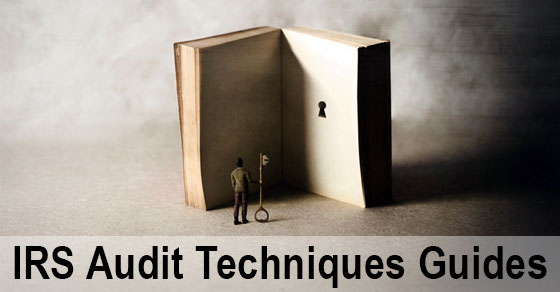Want to find out what IRS auditors know about your business industry?
In order to prepare for a business audit, an IRS examiner generally does research about the specific industry and issues on the taxpayer’s return. Examiners may use IRS “Audit Techniques Guides (ATGs).” A little-known secret is that these guides are available to the public on the IRS website. In other words, your business can use […]
Want to find out what IRS auditors know about your business industry? Read More »










